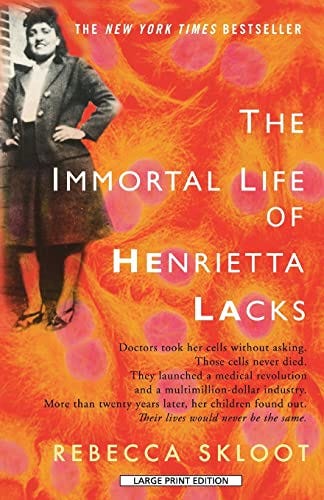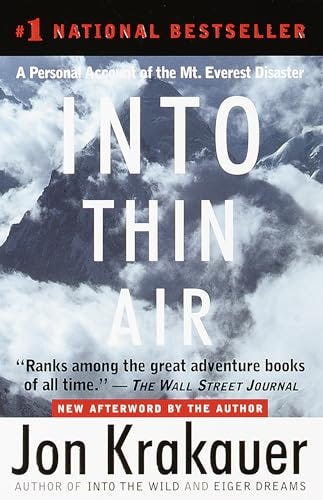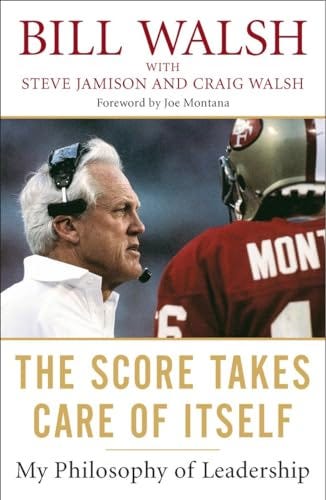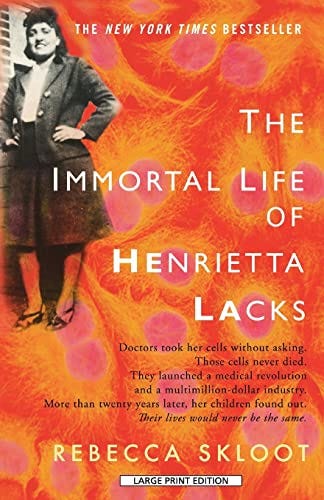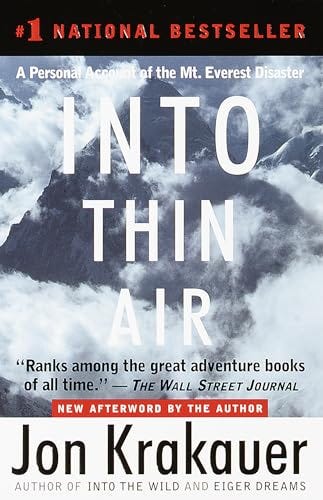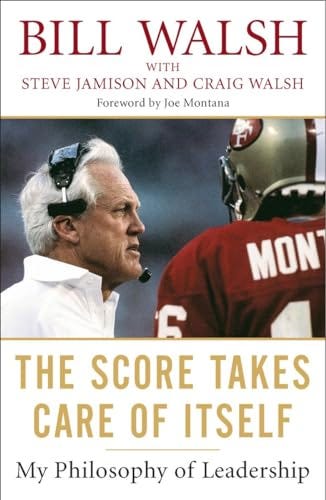The Gecko’s Tale: Lessons on Sacrifice, Resilience, and Transformation
Books that changed my thinking, behaviors, and life
Hello,
I wasn’t prepared for life in Florida .
Sure, I expected the sunshine, the sandy beaches, and maybe the occasional run-in with a flamingo.
What I didn’t anticipate were the geckos.
They’re everywhere—scurrying across patios, clinging to walls, darting under furniture. At first, I found them charming, like tiny reminders that I was somewhere new, somewhere different. But then they started showing up in the house.
I called my friend Dr. Mishkin, a Floridian, and asked, “Is this normal?” His response was casual, “Oh yeah, they get in. No big deal. They eat the insects.” For him, it was just a fact of life. For me, it felt like an invasion.
One day, I spotted one perched on the wall of my living room, and I decided I’d had enough. Armed with a cup and a piece of paper, I cornered it. But as I moved in for the capture, something unexpected happened—its tail snapped off.
There it was, lying on the floor, still moving, writhing like it had a mind of its own. I froze, caught between fascination and horror.
Later, I learned this was no accident. The gecko’s tail is designed to detach—a defense mechanism to distract predators, buying the gecko enough time to escape.
Even more amazing? The tail eventually regenerates. The gecko sacrifices a part of itself to survive, and then, with time, it grows back.
I couldn’t stop thinking about it. That tiny creature, with its wriggling tail and instinctive resilience, felt like a metaphor for life.
How often are we faced with situations where survival means sacrifice? A toxic relationship we finally walk away from. A career path we thought we’d follow forever but had to abandon. An old dream we let go of because it no longer serves us.
In those moments, it feels like losing a part of ourselves. And it’s tempting to focus on what’s gone—the tail left behind, still twitching with life.
But here’s the truth: sacrifice isn’t the end. It’s a beginning.
Like the gecko, we have the ability to regenerate. We rebuild. We adapt. What we lose may never come back in the same way, but what grows in its place can be stronger, wiser, and more aligned with who we’re becoming.
The gecko doesn’t mourn its tail. It doesn’t look back. It moves forward, instinctively trusting that what it needs will return. What if we approached our own lives with that same trust? What if we saw every loss as an opportunity to grow something new?
So, the next time you’re holding onto something that no longer serves you—whether it’s an outdated belief, a draining relationship, or even a piece of your identity—ask yourself: is it time to let it go? It might be scary. It might feel like leaving a part of yourself behind. But remember the gecko. Remember the resilience built into its DNA, and know that you, too, are capable of regenerating.
Sacrifice isn’t failure. It’s survival. It’s transformation. And it’s the first step toward growth.
Welcome to this week’s Three Book Thursday.
1. Biography
The Immortal Life Of Henrietta Lacks
Summary
At the heart of modern medicine lies an extraordinary story of sacrifice and humanity—a story largely unknown until Rebecca Skloot’s remarkable work brought it to light. The Immortal Life of Henrietta Lacks reveals how one woman’s unwitting contribution revolutionized science and continues to shape medicine today.
In 1951, Henrietta Lacks, a Black tobacco farmer from the segregated South, was treated for cervical cancer at Johns Hopkins hospital. Without her knowledge, doctors took a sample of her tumor cells, which turned out to be unlike any others—they could survive and reproduce indefinitely outside the human body. Known as HeLa, these cells became the foundation for countless breakthroughs, from the polio vaccine to cancer treatments and IVF.
During my undergrad years, the research lab I worked in used HeLa cells. At the time, I didn’t grasp the magnitude of Henrietta’s story or her unparalleled role in shaping modern science. Like so many in medicine, I benefited from her legacy without knowing her name.
Skloot’s book doesn’t just highlight scientific triumphs—it examines the ethical cost of progress. While Henrietta’s cells gained immortality, her family lived in poverty, unaware of her monumental contribution.
For those in medicine, this book is a powerful reminder of the humanity behind the science we practice. It challenges us to honor the dignity of every patient and the sacrifices that make progress possible. For anyone seeking inspiration, Henrietta’s legacy underscores the unseen sacrifices often driving transformative achievements.
The Immortal Life of Henrietta Lacks is a profound exploration of science, ethics, and humanity—a story that not only informs but inspires us to shape a future grounded in respect and justice.
Favorite Quote, Insight, & Principle
Quote: Every vial of HeLa cells carries with it the weight of history and the moral complexity of progress built on uncredited lives.
Insight: Her cells taught the world how to heal, but her story reminds us that healing also requires justice and acknowledgment of unseen sacrifices.
Principle: Henrietta’s legacy reminds us that extraordinary discoveries often arise from ordinary lives, and no contribution is too small to change the world.
Author: Rebecca Skloot
Themes: Biography
2. On living and dying
Into Thin Air: A Personal Account of the Mt. Everest Disaster
Summary
Into Thin Air: A Personal Account of the Mt. Everest Disaster is more than a recounting of one of Everest’s deadliest expeditions. It’s a gripping exploration of ambition, decision-making, and the delicate balance between triumph and tragedy. At its heart, it’s a reflection on the human spirit—our drive to achieve greatness and the sacrifices it demands.
Krakauer, an experienced climber and journalist, joined a guided expedition to Everest in May 1996. What began as a dream turned into a nightmare when a sudden storm struck, leaving climbers stranded and disoriented. Eight lives were lost in a single day. Through his vivid and harrowing account, Krakauer examines how ego, overconfidence, and the lure of the summit can cloud judgment—even at 29,000 feet, where every breath is a battle against nature.
The mountain, in many ways, mirrors life’s greatest challenges. Whether in medicine, entrepreneurship, or personal growth, the lessons resonate: preparation matters, humility is essential, and sometimes the bravest choice is knowing when to turn back. Krakauer’s account reminds us that success without self-awareness can lead to devastating outcomes.
But amidst the chaos, acts of heroism emerge. Climbers risked their lives to save others, showing that even in the direst circumstances, humanity can prevail. For those working in high-stakes environments, it’s a powerful reminder that courage and compassion are as vital as skill and strategy.
Krakauer’s story teaches that true success lies not just in reaching the peak but in navigating the journey with purpose, humility, and resilience.
Favorite Quote, Insight, & Principle
Quote: The summit is what drives us, but the climb itself is what matters.
Insight: To turn around before reaching the summit requires the strength of character few climbers possess.
Principle: It is not the mountain we conquer but ourselves.
Author: Jon Krakauer
Themes: On living and dying, Biography, Travel
3. Leadership
The Score Takes Care of Itself: My Philosophy of Leadership
Summary
Bill Walsh’s The Score Takes Care of Itself: My Philosophy of Leadership is a masterclass on what it truly means to lead—with integrity, vision, and a relentless commitment to excellence. Drawing on his transformative tenure as head coach of the San Francisco 49ers, Walsh shares the principles that turned a struggling football team into one of the greatest dynasties in sports history. But this isn’t just a book about football; it’s a blueprint for anyone looking to lead effectively—whether in medicine, entrepreneurship, or any team-driven field.
At its core, Walsh’s philosophy centers on one profound idea: if you focus on the process—on doing things the right way, every time—the results will follow. Walsh’s leadership wasn’t about micromanaging outcomes; it was about creating a culture of discipline, accountability, and excellence. Every detail mattered, from how players practiced to how they conducted themselves off the field. This wasn’t perfectionism for its own sake—it was about building habits that compounded into greatness.
Walsh’s insights into team culture are among the best I’ve ever read. He understood that leadership is not about commands and control but about inspiration and empowerment. He writes candidly about his own insecurities, his failures, and the immense pressure of leadership, showing us that great leaders aren’t born—they’re made through self-reflection, resilience, and an unwavering commitment to their values.
One of the most striking lessons in the book is Walsh’s concept of the Standard of Performance. He believed in setting clear expectations for behavior and performance—not just for players but for every single person in the organization, from assistant coaches to janitors. By defining what excellence looks like and holding everyone to that standard, Walsh created an environment where people thrived. It’s a reminder that culture doesn’t happen by accident; it’s the result of deliberate, consistent effort.
For those of us in leadership roles—whether coaching a sports team, running a business, or directing a medical team—this book offers invaluable lessons. Walsh teaches us that leadership is about more than just achieving results; it’s about building something lasting. He challenges us to focus on what we can control, to invest in people, and to lead with humility and purpose.
The Score Takes Care of Itself is not just a book—it’s a leadership manifesto. I can confidently say it’s one of the best books on coaching, team culture, and leadership that I’ve ever read. If you’re a coach, a manager, or anyone responsible for leading others, this is a must-read. Walsh’s wisdom will inspire you to raise your own Standard of Performance, not just for your team but for yourself. It’s a reminder that great leadership isn’t about chasing success—it’s about creating the conditions for it to flourish.
Favorite Quotes, Insights, & Principles
Quote: The fact that we had seemingly no option forced us to come up with new options-the West Coast Offense.
Insight: The competitor who won't go away, who won't stay down, has one of the most formidable competitive advantages of all.
Principle: There is a significant price to pay to be the best.
Author: Bill Walsh
Themes: Leadership, Culture, Football
Announcement: Let’s forget about subscription fees (3BT is too much fun!).
Three Book Thursday is a free publication, shared with a community of people who strive for growth, who seek to make an impact, and who are committed to living life to the fullest.
However, If you find value here, consider supporting the newsletter—it helps keep this journey going and means the world to me.
Legacy and Immortality
“Her cells were the first immortal human cells ever grown in a laboratory, and they continue to live decades after her death, a testament to both scientific progress and the unrecognized contributions of one woman.”
“When you know that something you’ve done has changed the world in ways you’ll never fully comprehend, it’s a kind of immortality no one can take away.”
Reflection
Henrietta Lacks’s story isn’t just about HeLa cells—it’s about how one person’s existence can ripple through time, creating waves that outlast them. Her immortal cells have saved countless lives, yet her name was almost forgotten in the process. In a world obsessed with recognition and accolades, Henrietta’s story reminds us that true immortality lies in the impact we have on others. We may never know the full scope of our influence, but our actions—big or small—can shape futures far beyond our imagination.
The Cost of Progress
“Scientists often forget the people behind the cells, the lives behind the discoveries. But those lives are where the real story begins.”
“Henrietta’s story forces us to ask who benefits from science and who bears the cost, a question that’s as old as medicine itself.”
“A single biopsy changed the course of science, but it also left a family wondering if anyone truly cared about the person behind the cells.”
Reflection
In the pursuit of progress, it’s easy to overlook the human stories that make breakthroughs possible. Henrietta’s cells revolutionized medicine, but at what personal cost? Her family’s questions and struggles highlight the ethical dilemmas often buried beneath scientific achievement. This isn’t just a cautionary tale—it’s a call to action. As we advance, we must remember the humanity at the heart of every discovery. Science doesn’t exist in a vacuum; it thrives on trust, transparency, and respect for those who unknowingly pave the way forward.
Ethics and Recognition
“Progress is a double-edged sword, offering both extraordinary potential and profound ethical dilemmas that demand our attention.”
“Henrietta’s legacy reminds us that extraordinary discoveries often arise from ordinary lives, and no contribution is too small to change the world.”
“Her cells taught the world how to heal, but her story reminds us that healing also requires justice and acknowledgment of unseen sacrifices.”
Reflection
Henrietta’s story challenges us to confront the moral complexities of innovation. While her cells brought healing to millions, the ethical questions surrounding her uncredited contribution linger. This duality forces us to ask: How do we honor the past while striving for a better future? Acknowledgment isn’t just about giving credit—it’s about affirming the value of every life, every sacrifice, and every untold story that shapes progress. As we celebrate advancements, let’s not forget the people who made them possible, often without their consent or recognition.
The Power of a Name
“Every vial of HeLa cells carries with it the weight of history and the moral complexity of progress built on uncredited lives.”
“Henrietta’s story isn’t just about cells or science—it’s about the dignity of being remembered, the value of a name, and the power of legacy.”
Reflection
There’s a profound dignity in being remembered. For decades, Henrietta was known only as HeLa—a name stripped of its humanity. Restoring her identity wasn’t just a symbolic act; it was a powerful acknowledgment of her worth as a person. It’s a reminder to all of us: Names matter. Stories matter. To be seen and known is a fundamental human need. Henrietta’s story encourages us to honor not just the results of someone’s life but their humanity, to give credit where it’s due, and to ensure that no one’s contributions go unrecognized.
The Allure of the Summit
“The summit is what drives us, but the climb itself is what matters.”
“Attempting to climb Everest is an intrinsically irrational act—a triumph of desire over sensibility.”
“You can never conquer a mountain. You can only climb it and hope you return to tell the tale.”
“The joy of reaching the summit is fleeting; the struggle to get there is what leaves its mark.”
Reflection
Chasing a summit—whether it’s a mountain, a career milestone, or a personal goal—can feel like the ultimate achievement. But Jon Krakauer’s insights remind us that the real value lies in the journey. It’s in the struggle, the growth, and the lessons learned along the way that we find meaning. When we reach the peak, the euphoria is brief, but the transformation from the climb stays with us. Let these moments of effort, not just the victories, define who we are.
The Fragility of Survival
“Above 26,000 feet, your body begins to consume itself. The only cure is to get down.”
“In the mountains, there are no guarantees, no shortcuts, no margin for error.”
“How easy it is to become mesmerized by the enormity of the climb, to forget the fragile grip we have on survival.”
“When you’re in the death zone, rational thought gives way to raw instinct.”
Reflection
Krakauer’s descriptions of Everest’s death zone serve as a stark reminder of life’s fragility. Whether on a mountain or in our everyday struggles, we often push ourselves to the brink, forgetting how delicate our existence truly is. The challenge is to recognize our limits—not as a weakness, but as a strength that keeps us grounded. Survival often hinges on humility, knowing when to push and when to retreat. These lessons transcend the mountains and apply to the precarious balance of life itself.
The Strength to Turn Back
“To turn around before reaching the summit requires the strength of character few climbers possess.”
“The risks we take reveal who we are, what we value, and what we’re willing to sacrifice.”
“The greatest danger lies in underestimating the mountain—or overestimating yourself.”
Reflection
There is an undeniable power in knowing when to stop. The decision to turn back is not a sign of failure but of wisdom and courage. In our pursuit of success, we’re often tempted to push past warning signs, blinded by ambition. But as Krakauer shows, sometimes the boldest act is stepping away, preserving ourselves for another day. Letting go of a goal can feel like a loss, but in reality, it’s a testament to valuing what truly matters—health, relationships, and the ability to keep climbing.
The Power of Risk
“Being on the edge of life can sometimes be more exciting than life itself.”
“The air up there is so thin that a flicker of doubt can grow into a hurricane of fear.”
“The risks we take reveal who we are, what we value, and what we’re willing to sacrifice.”
Reflection
Life without risk is stagnant, but risk without reflection can be destructive. Krakauer’s account reveals the fine line between exhilaration and disaster. Taking risks is essential for growth and fulfillment, but they must align with our values and deeper purpose. Are the risks we’re taking moving us closer to what we cherish, or are they pulling us away? Let the answers guide our actions, ensuring that our leaps of faith serve to elevate, not endanger, the lives we’re striving to build.
The Battle Within
“It is not the mountain we conquer but ourselves.”
“On Everest, as in life, hubris is often met with harsh lessons.”
“The mind will quit before the body does. To endure is to overcome the mind’s limits.”
Reflection
Climbing Everest, like many of life’s challenges, is as much an internal battle as it is an external one. Krakauer captures the truth that our greatest obstacles often lie within—our doubts, fears, and egos. To succeed, we must quiet the inner voices of defeat and remain focused on the path ahead. True triumph isn’t just reaching the summit; it’s overcoming the mental barriers that hold us back. This is a lesson we can carry into every aspect of our lives: success starts with mastering ourselves.
The Power of Unity and Trust
“In rowing, the truly great rowers work as one, as if they have a single mind. They find harmony that can’t be achieved alone.”
“Trust isn’t built in a single race but through a thousand shared hardships.”
“A boat is an extension of the team; every movement you make echoes through the water and impacts the whole.”
Reflection
Though this theme is drawn from a different context, its relevance to Everest is unmistakable. The mountains demand teamwork, trust, and a shared commitment to safety and success. The same is true in life. None of us reach our summits alone. Surround yourself with people who support you, challenge you, and share in your vision. Together, you can achieve heights that would be impossible on your own. The bonds forged in shared struggles often become the strongest.
The Power of Standards
“Within our organization, the Standard of Performance served as a compass that pointed to true north. It was our point of reference, what we always returned to when things wobbled—deeply entrenched, ongoing, and stabilizing regardless of the final score.”
“People want to believe they are part of something special, an organization that’s exceptional.”
“The culture precedes positive results. Champions behave like champions before they’re champions; they have a winning standard of performance before they are winners.”
Reflection
In a world often obsessed with quick wins and shortcuts, Walsh reminds us that greatness is built on a foundation of unwavering standards. Whether you’re leading a team, running a business, or managing your own life, setting clear expectations—and holding yourself accountable to them—creates stability amid chaos. Culture isn’t an afterthought; it’s the bedrock of long-term success. True champions don’t wait for the victory to act like winners—they embody those values from the very start.
Leadership as Teaching
“Leadership, at its best, is teaching skills, attitudes, and goals to individuals who are part of your organization.”
“My mission statement was implanted in the minds of our people through teaching.”
“The true inspiration, expertise, and ability to execute that employees take with them into their work is most often the result of their inner voice talking, not some outer voice shouting.”
“For members of a team, you determine what their inner voice says. The leader, at least a good one, teaches the team how to talk to themselves.”
Reflection
Leadership isn’t about grand speeches or flashy motivational tactics; it’s about teaching. Walsh’s perspective challenges us to see leadership as an act of service—helping others develop the skills and mindset to succeed. This applies to every field, from medicine to entrepreneurship. The real work of a leader lies in shaping how people think and empowering them to listen to their own inner voices. When you teach well, you don’t just lead for today—you leave a legacy that echoes in the actions of others.
The Weight of Preparation
“Contingency planning is critical and is a primary responsibility of leadership. You must continually be anticipating to deal with foul weather.”
“You must envision the future deeply and in detail—creatively—so that the unforeseeable becomes foreseeable. Then you write your script for the foreseeable.”
“A leader must see the forest and the trees.”
Reflection
Walsh’s emphasis on preparation is a masterclass in staying ahead of the curve. Life, like football, is unpredictable. Contingency planning isn’t about expecting perfection; it’s about equipping yourself to handle the unexpected with grace. Whether it’s caring for a sick patient, a business strategy, or a personal project, preparation is what allows you to adapt and thrive. Great leaders don’t just react—they anticipate, adjust, and act with intention.
The Role of Relationships
“The most important attribute of any organization is the way it treats its people, its commitment to the individuals on the team.”
“Hostile relationships are toxic. Cultivate good relationships. Be available; avoid making enemies; don’t close off communications.”
“One enemy can do more damage than the good of a hundred friends. While you are getting even, they’re getting ahead.”
Reflection
At the heart of Walsh’s philosophy is the understanding that people are the foundation of any successful team or organization. Relationships matter. A toxic environment can undo even the best strategy, while genuine care for people fosters loyalty, collaboration, and trust. Whether in medicine, business, or life, we must prioritize how we treat others. Strong relationships don’t just make us better leaders—they make us better humans.
The Long Game of Success
“Achieving success takes patience, time, and fortitude.”
“Success Disease makes people begin to forgo the effort, focus, discipline, teaching, teamwork, learning, and attention to detail that brought mastery and its progeny, success.”
“The competitor who won’t go away, who won’t stay down, has one of the most formidable competitive advantages of all.”
Reflection
Success isn’t a destination; it’s a process. Walsh’s insights on the “disease of success” highlight a crucial truth: the hunger and discipline that drive achievement can fade if we’re not vigilant. The antidote? Perseverance, humility, and a commitment to constant growth. True success lies not in resting on your laurels but in continually striving to improve. The competitor who refuses to quit—who shows up again and again—is often the one who ultimately prevails.
Building a Legacy
“Victory is produced by all and belongs to all. Failure belongs to everyone.”
“The trademark of a well-led organization in sports or business is that it’s virtually self-sustaining and self-directed—almost autonomous.”
“Great teams in business or in sports have a conscience. At its best, an organization, your team, that source is you, the leader.”
Reflection
Walsh’s ultimate lesson is that leadership is about creating something bigger than yourself. A well-led team doesn’t depend solely on its leader—it thrives independently because of the foundation you’ve built. Leadership isn’t about control; it’s about empowering others to carry the torch, long after you’re gone. Whether you’re leading a medical team, a company, or your family, your legacy is defined by the culture, values, and inspiration you leave behind.
Sacrifice isn’t just about loss; it’s about transformation. Whether it’s the gecko shedding its tail, Henrietta Lacks’s cells reshaping medicine, climbers on Everest making life-and-death decisions, or Bill Walsh building a culture of excellence, the thread is the same: we grow when we let go.
What strikes me is how often we resist sacrifice, clinging to what feels safe or familiar. But the gecko doesn’t hesitate—it instinctively knows that survival requires letting go. Henrietta’s cells, unknowingly taken, became the foundation of medical breakthroughs, reminding us that even unchosen sacrifices can ripple into profound impact. Walsh’s commitment to a higher standard over quick wins shows us that sometimes we must give up immediate gratification to build something lasting.
The deeper connection is this: sacrifice reshapes us. It forces us to adapt, to reimagine, to create. In life, the things we lose often make space for the things we need most. When we trust this process, we find strength not in what’s left behind but in what lies ahead.
So, ask yourself: What can you let go of today? What’s holding you back from regenerating, from growing into the next version of yourself? Trust the process. Like the gecko, like Henrietta’s legacy, like the champions Walsh built, you, too, are capable of transformation. Sacrifice is not the end—it’s the beginning of something extraordinary.
Best,
Adam



